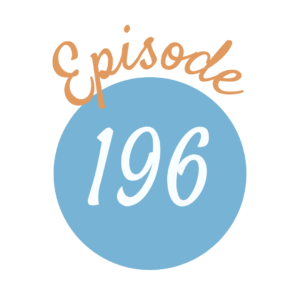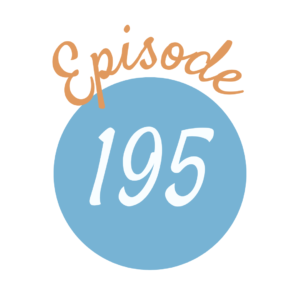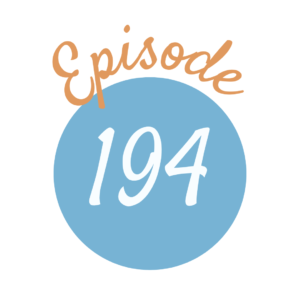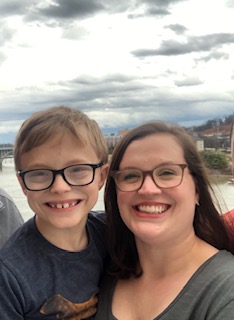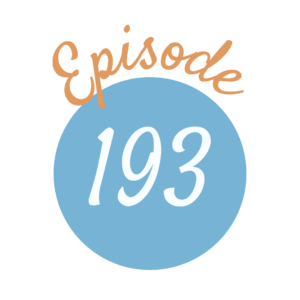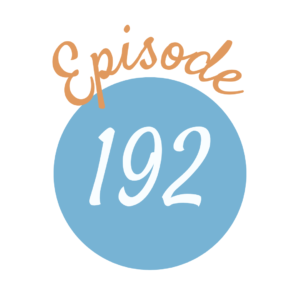The feast Charlotte Mason spread for the children included generous portions of history, geography, and modern language, but in the upper forms the news of the day was another important aspect for study. How do we navigate the current events in our turbulent, partisan, and often shocking times? Liz, Emily, and Nicole discuss the purpose of current events in the program, as well as sources of news and applications of world events in the education of our children.
Listen Now:
 “There has seldom been a time in recent years in which the events of the day would not give an interesting parallel to some event of the past. [Recent news stories are] full of incidents which might…help a teacher to present the past as a more living reality. The things that are going on round us in the world are real: these are in everyone’s mouth : they touch many families directly : the linking of past and present by the teacher relieves the flatness of past events and makes them stand out as actual and distinct. … undoubtedly where children are taught to understand the nature of the political and national struggles which are going on round us, and the principles which underlie them, they are far more likely to grow up to understand what was involved in the history of the past.” (Sing, Rev. Canon. Parents’ Review 10, p. 758)
“There has seldom been a time in recent years in which the events of the day would not give an interesting parallel to some event of the past. [Recent news stories are] full of incidents which might…help a teacher to present the past as a more living reality. The things that are going on round us in the world are real: these are in everyone’s mouth : they touch many families directly : the linking of past and present by the teacher relieves the flatness of past events and makes them stand out as actual and distinct. … undoubtedly where children are taught to understand the nature of the political and national struggles which are going on round us, and the principles which underlie them, they are far more likely to grow up to understand what was involved in the history of the past.” (Sing, Rev. Canon. Parents’ Review 10, p. 758)
“He must have a living relationship with the present, its historic movement, its science, literature, art, social needs and aspirations. In fact, he must have a wide outlook, intimate relations all round” (3/162)
And having these relationships prevents our students from “leave[ing] school with no ideas, [about our present time] hopelessly ignorant of what is taking place in the great world outside,” (Mais, S. P. B. English In The Public Schools. Parents’ Review 25, p. 101)
“We must read our newspaper, of course––newspapers on both sides; but he who founds upon his newspaper is an ignorant patriot and an illiberal citizen. His opinions are no more than parrot-like repetitions of other men’s sayings; whereas he who dwells with dutiful interest upon the history of his own country, distressed over her ignominies, proud when she has shown herself great; who has pondered the history of another great empire––admiring the temperate justice with which its distant colonies were administered, and scrutinising the causes of its fall––he gradually acquires some insight as to the meaning of national life. He is able to express an opinion which is not a mere echo, and gains convictions which will certainly be of use to his country, even if they are known only to the people about his own fireside.” (4/2/75)
“The child’s range of sympathy must be widened, his love must go out to far and near, rich and poor; distress abroad and distress at home should appeal to him equally; and always he should give some manner of help at real cost to himself. [and she points out that one way this is facilitated is that] When he is old enough, the object-lessons of the newspapers should be brought before him.” (2/266)
“One of the most effectual methods of inculcating patriotism in the home is judicious newspaper reading. (Stephens, Winifred. Patriotism In Education. Parents’ Review 18, p. 101.)
“He who reads history in this way, not to pass examinations, nor to obtain culture, nor even for his own pleasure (delightful as such reading is), but because he knows it to be his duty to his country to have some intelligent knowledge of the past, of other lands as well as of his own, must add solid worth to the nation that owns him. It is something to prepare for the uses of the State a just, liberal, and enlightened patriotism in the breast of a single citizen.” (4/2/75)
“We can only plead again that partial knowledge and ignorance breed fear, where true comprehension and sufficient pains in explanation would cast it out. But there are other dangers. The candour and broad-mindedness of young people would be injured, some think, by the study of events of which in the nature of things they will only hear one side. The nationality, politics, and even religion, of their parents or teachers will so affect the view taken of the passing day that in recording its events to the child, only one narrow aspect will reach them.
Well, better that than none at all; though where children are allowed to listen to rational conversation on current topics instead of having all the talk brought down to their level, they may on the contrary learn to respect many points of view” (Pennethorne, R. A,. The Teaching Of Contemporary History. Parents’ Review 12, p. 275-76.)
“But we may run no needless risks, and must keep a quiet, matter-of-fact tone in speaking of fire, shipwreck, or any terror. (3/185)
“Calumny, we all know, is the speaking of injurious words about other people. We must keep our tongues from evil-speaking, lying, and slandering; and Wesley says that to speak evil of another when it is true is to slander, and when it is false, is to lie. Such things as these, about the people we have dealings with, are lightly said, often without intention; but two things have happened––our neighbour’s character has received a wound; and Truth, perhaps the most beautiful inmate of the House of Heart, has also received a hurt at our hands.” (4/1/152-153)
“The class of literature to which I refer will be obvious to everybody. I mean that sort of paper, daily or weekly or monthly, which is conducted on purely commercial principles, and consists of isolated scraps of a sensational or scandalous or gossipy nature, each paper endeavouring to outbid its rivals by an intenser appeal to the gape and itch of an idle or prurient curiosity. Such papers propose to themselves no object of enlightenment or culture : they are bent simply upon hitting and indulging the vulgar taste, and therefore by an inevitable law upon accentuating and debasing it.” (Mills, J. Saxon. Character and the Modern Press. Parents’ Review 7, p. 282)
“This is the opportunity to keep the young people informed upon the topics of the day,––who has made a weighty speech; who has written a book, what its merits and defects; what wars and rumours of wars are there; who has painted a good picture, and what are the characteristics of his style. The Times newspaper and a good weekly or monthly review will furnish material for talk every day in the week. The father who opens the talk need not be afraid he will have to sustain a monologue; indeed, he had better avoid prosing; and nothing is more delightful than the eager way the children toss the ball to and fro. They want to know the inns and outs of everything, recollect something which illustrates the point, and inevitably corner the thing talked about for investigation––is it “right,” or “wrong,” “good,” or “bad”; while the parents display their tact in leading their children to form just opinions without laying down the law for them. The boys and girls are engaged with the past, both in their school-work and their home reading, and any effort to bring them abreast of the times is gratifying to them; and it has a vivifying effect on their studies.” (5/231)
“Now every argument for the teaching of history as a whole applies doubly to the history of our own times. … No great movement, no convulsion of nations or of society is sudden; the causes of to-day’s events must be sought, not only in last year’s, but in yesterday’s, and to-day’s doings are profoundly affecting to-morrow.” (Pennethorne, R. A. The Teaching of Contemporary History. Parents’ Review 12, p. 273)

The World and Everything In It Podcast
The New Paper Newsletter
Prisoners of Geography
Episode 107: Forming Informed Opinions
